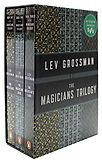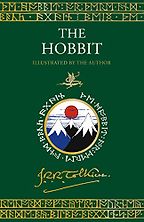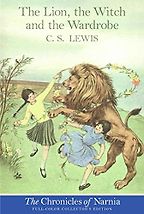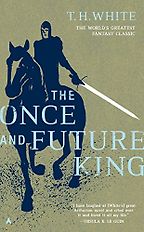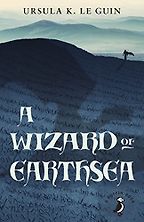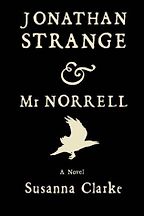Let’s start with the basics. What exactly is fantasy?
My working definition? Any book with magic in it. It’s crude but effective. It helps if you take the long view, historically speaking, because it’s not like JRR Tolkien invented fantasy with The Hobbit. Take a giant step back and you can’t help but notice that the greater part of all human literature is fantasy, in the sense that it has monsters and magic and things like that in it. Shakespeare is infested with ghosts and spirits and witches. Look at Spenser. Look at Dante. Look at Ovid, or Homer. Go back past the 18th century and practically everything could be called fantasy.
It’s only relatively recently, at the start of the 18th century, that you see the arrival and dizzying ascent of what we might broadly call realism. Suddenly, around about Robinson Crusoe or so, Western culture was seized by this powerful idea that literature was supposed to resemble real life, and fictional worlds were supposed to behave like the real world, as it was coming to be understood by scientists, and anything that didn’t do so wasn’t literature. Magic and the supernatural were exiled to other, lesser categories: Gothic fiction, fairy tales, ghost stories, children’s books, fantasy. A lot of people still think it belongs there.
OK, interesting. But I didn’t mean that stuff. I meant fantasy fantasy – you know, like Narnia. Like Harry Potter.
I knew what you meant. I was just being pedantic about it. There is a specific modern tradition of fantasy fiction that starts in the 1920s and 1930s in England and America with writers like Lord Dunsany and Hope Mirrlees, and which really takes off with CS Lewis and JRR Tolkien, as well as TH White and Robert E Howard (who created Conan the Barbarian). You can trace the roots back further, of course, to the gothic novels of the 18th and 19th centuries. But it’s those writers who are the immediate ancestors, in a literary sense at least, of JK Rowling and Philip Pullman and Stephenie Meyer.
I wonder why modern fantasy got started at that particular moment in history?
It may amaze you to know that I have a theory about that. That generation – the ones who were writing in the 1920s and 30s – had been the victim of a historical trauma: They bore witness to a period of catastrophic social and technological change. The Victorian world of their childhood was shattered and swept away by the “advances” of the early 20th century – the electrification of cities, the rise of mass media, the replacement of horses by cars, the rise of psychoanalysis, the invention of mechanised warfare. As a result, the world that they found themselves in as adults was virtually unrecognisable to them.
“Go back past the 18th century and practically everything could be called fantasy.”
Some of those writers responded to this cataclysm by creating strange, fragmented masterpieces that we now know as literary modernism: Joyce, Hemingway, Kafka, Woolf, Faulkner and so on. Gertrude Stein famously called them the Lost Generation, and she wasn’t wrong. But other writers – like Lewis and Tolkien, who were both veterans of the Somme – wrote fantasy instead. They used it as a way to express their sense of longing for a lost world, an idyllic, more grounded, more organic, more connected world that they would never see again. They were part of the Lost Generation too.
I loved all that stuff when I was a kid. But it doesn’t seem like fantasy has evolved much since back in the day. Isn’t it still all just swords and sorcery and good versus evil and whatnot?
I can understand why you’d think that, but it’s actually not the case at all. It’s a well-kept secret, but we’re living through a really interesting, rather wonderful moment in the history of fantasy – another golden age. The last decade or so has seen an extraordinary number of great fantasy novels that have radically expanded the genre’s depth and power.
Look at George RR Martin, for example, author of Game of Thrones. He writes epic fantasy, but he does it very differently from the way Tolkien did. Tolkien airbrushed out most of the graphic sex and violence and misery that you’d expect to find in a quasi-medieval world. Martin leaves it in. He’s wiped the Vaseline off the lens. And on a deeper level, his work is more morally complex and nuanced than Tolkien’s. Tolkien, in his Manichean way, writes about a titanic struggle between good and evil. But Martin’s characters are both good and evil at the same time. They’re petty and noble and lusty and greedy and selfless all at once. It’s not so easy to tell the good guys and the bad guys apart.
“We’re living through a really interesting, rather wonderful moment in the history of fantasy – another golden age”
Martin is one of a group of writers who have been making fantasy richer and more complex, as befits our increasingly complex world. They’re questioning or inverting or just demolishing some of the basic assumptions and conventions that lie at the heart of the fantasy tradition. By doing so they’re actually strengthening and renewing that tradition – much the same way Alan Moore rejuvenated the superhero comic by attacking its sacred writ in Watchmen.
Who exactly is doing this?
Off the top of my head: Neil Gaiman, Kelly Link, Susanna Clarke, China Miéville, Joe Abercrombie, Philip Pullman, Margo Lanagan. I don’t think it’s an accident that this is happening now. Like the Lost Generation, we’ve lived through a lot of catastrophic social and technological change. We have our share of longing to do, too.
Is that what attracted you to fantasy?
Probably. On some level at least. I think fantasy appealed to me for different reasons when I was a child, when the lost world was something closer to the womb or the nursery. But now, as an adult, I feel like fantasy is a powerful tool for getting at what exactly is so strange and alienating about the postmodern technosphere that we seem to have no choice but to inhabit.
Mind you, I was also attracted to fantasy because it annoyed my parents. They’re both English professors, and I think they would have preferred me to write in some slightly more respectable genre. So it was a win-win.
So what makes for a good fantasy novel?
The same things that make any novel good: Rich, textured language; psychological authenticity; complex, resonant plotting and imagery. That glibly said, I think the special challenge for a fantasy novelist is to create a world where magic is real, but where it doesn’t solve all of the characters’ problems. Great fantasy is not pure escapism, where characters can wish their problems away. It’s a way of re-encountering the same problems we face in the real world, but in a stranger, more vivid form. One thing I look for in a great fantasy novel is a moment where the hero realises that for all the spells she can cast, and all the foes she can slay with the glowing blade of the elf-wraith or whatever, she still has to deal with the basic problems of human existence – love, sex, death, boredom, sadness, and so on. Those are the fundamental human challenges. They’re irreducible, even by magic.
OK, let’s get your recommendations. You know the drill – top five.
First up, The Hobbit, or There and Back Again, by JRR Tolkien. But you knew I was going to say that. This one book, which was published in 1937, defined so many variables for the fantasy tradition that are still in place today. Tolkien’s extraordinary achievement was to recover the epic landscapes of Anglo-Saxon myth, bring them back to life, and then to take us through them on foot, so we could see the details up close, at human scale. The Hobbit is both mythic and relatable at the same time – The New Yorker writer Adam Gopnik recently called it “an arranged marriage between the Elder Edda and The Wind in the Willows”, and I think that’s entirely fair. Though I would give more credit to the bass register of Tolkien’s imagination, its abyssal depths. Mole never delved as deep as the Mines of Moria.
What next? No wait, let me guess: The Lion, the Witch and the Wardrobe, by C. S. Lewis?
You win some Turkish delight. Everyone knows Lewis’s Narnia books are a foundational work of the modern fantastic. But I don’t think Lewis gets enough credit for his craft as a writer. Those books are deceptively simple. Look at the way he constructed the opening of The Lion, the Witch and the Wardrobe. He puts the shadows of the war in the background, the excitement of a new house in the country in the foreground. Look at how he carefully sketches all the relationships between all four of the Pevensie children. And when he sends Lucy through the wardrobe (it’s on page five – he doesn’t waste time), it’s like nothing else in fiction up to that point. There are no sparkles, no wondrous rhetoric, just one precisely observed sensory detail after another: A dead bluebottle on a windowsill; some soft coats; some cold crunchy snow; some prickly pine branches – and then you’re in Narnia. People dismiss Lewis as a Christian propagandist, but that’s a mistake. He was a novelist before he was a Christian.
Now I’m out of guesses.
T. H. White’s The Once and Future King. White is less famous than Lewis and Tolkien, but he was a better writer, at least as far as style goes, and his book is a true masterpiece in its own right – a thoroughly modern re-imagining of the great English epic, the story of King Arthur. Like Tolkien, White takes an ancient, mythic landscape and scales it down to human size (or perhaps he scales us up). But White’s world is more brightly lit than Tolkien’s – he dispenses with all those Wagnerian storm clouds. White’s England is all streaming banners and sun-splashed meadows and shining walls, and he lingers longer over his characters, making them more complex and flawed and divided against themselves. The first part alone, “The Sword in the Stone”, about Arthur’s early years and his education by Merlin, may be the best story of a childhood ever committed to paper.
So what – all Brits?
Not all. Let’s do Ursula Le Guin’s A Wizard of Earthsea next. It was published in 1968 and it was a revelation for fantasy readers, and possibly a revolution. In Le Guin’s work you can see a predominantly Christian, patriarchal, English tradition reinvented by a writer who was not only an American woman but a Taoist-atheist. (I like to think of the map of the archipelagic Earthsea as an image of a Middle Earth without a middle, as if it had been dropped and shattered.) Both Tolkien and Lewis were devout Christians, but Le Guin brought fantasy back to its pagan roots. She used as the foundations of her magic system and her story the building blocks of nature and sex and language.
That’s four. You get one more.
It’s hard to pick one book to represent all the richness and coolness that’s going on in fantasy right now, in the present moment. But I have to, so I’m picking Susanna Clarke’s Jonathan Strange & Mr Norrell, which was published in 2004. The humour and sadness and beauty and complexity of this book, which took Clarke 10 years to write, are like nothing that came before it.
Unlike the fantasies of the 1920s and 1930s, Clarke’s book isn’t about people losing a world – instead they’re rediscovering magic that has been lost for centuries, and reacquainting themselves with both its great boons and also its enormous costs and the sorrows they bring. It’s a magic that feels absolutely real, as if the book were an eyewitness account. Not since Lewis has the supernatural been such a thrilling, immediate, concrete presence on the page. It’s no accident that I began The Magicians in 2004 – Strange is the book that woke me up to the power of the new fantasy. Read it, and you may be woken up too.
So she’s the future of fantasy?
Writers like Clarke aren’t just the future of fantasy, they’re the future of literature. We’re living at a time when more and more readers are turning to what used to be dismissed as genre fiction – fantasy, young adult novels, mysteries, science fiction, romance – to get what they used to get from literary fiction.
The reign of realism, which began in the 18th century, is finally being eroded. Writers like Michael Chabon and Jonathan Lethem and Kazuo Ishiguro and Colson Whitehead are crossing from literary fiction into genre fiction, just as Clarke and Link and Gaiman and the others are crossing the same divide from the other direction. They’re interbreeding the two forms, to create new and vital kinds of novels for the new millennium. They’re our literary avant-garde. They’re the writers who are mapping out the future of the novel. From where I sit, it looks fantastic.
August 30, 2012. Updated: December 11, 2025
Five Books aims to keep its book recommendations and interviews up to date. If you are the interviewee and would like to update your choice of books (or even just what you say about them) please email us at [email protected]
Five Books interviews are expensive to produce. If you've enjoyed this interview, please support us by donating a small amount.

